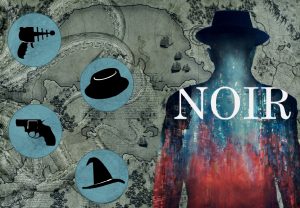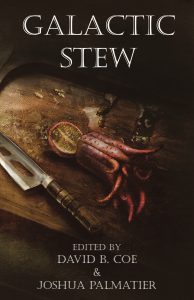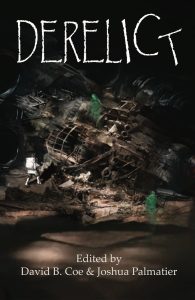I know my knee-jerk response is not always my wisest response.
All of us who have gone through the editorial process are familiar with the conundrum: We want to work with our editors. We want to cultivate reputations for being easy to work with, cooperative, flexible, etc. No one WANTS to be known as a prima donna. At least almost no one. But then we find that our editor (or our copy editor, or our proofer) has altered something we didn’t want altered, killed a darling we weren’t willing to sacrifice. What do we do? Do we dig in our heels in order to keep the original wording, carving “STET” (editorial speak for “let it stand”) into the manuscript with a bloody blade? Or do we give in, though it hurts physically to do so?
Put another way, when do we as writers fight for wording we want, and when do we acquiesce?
Over the past few years, I have been both editor and writer on a number of stories and novels. I have felt the sting of having passages I have written, passages I care about, altered by an editor, and I have also had writers reject editorial feedback I have given that I know, with every fiber of my being, would make their work better. I haven’t enjoyed either experience, yet I have come to see that both are natural, even necessary, outcomes of the literary process.
At its best, the relationship between writer and editor is collaborative, cooperative. It necessitates compromise. Some of our darlings won’t survive the process. Some of the editor’s suggestions will be rejected. Early in my career, I worked with an editor who had far, far more experience than I did, and this editor expected that I would defer in most if not all cases. Our interactions often left me feeling bullied, and there were changes the editor insisted upon that I wish I had rejected. I have also, in my editorial capacity, worked with writers who refuse all suggestions. All of them. Neither extreme is likely to produce the best possible version of the story, which, of course, ought to be the entire point.
So, as writers, how do we decide how hard to push back, when to compromise, when to insist on our wording or approach? And as editors, how insistent should we be?
Let me begin by addressing that last question, because in many respects it’s the easiest to answer. In my capacity as editor, I feel it is my responsibility to point out to my writers anything and everything I can see that I believe needs to be fixed in order to improve the story or book. I will offer possible solutions — alternate wording or potential fixes for narrative issues, but none of what I suggest is meant to be the only possible approach. My purpose is to point out a problem. The author can fix it any way they choose. Or they can decide it’s not a problem. And, generally speaking, if an author decides the problem I have identified is NOT in fact a problem, I will respect that decision. Every now and then, if I believe the issue is serious enough and the author decides initially that they don’t agree, I will mention the issue again and explain why I think it matters, and how it might be addressed without changing too much. After that, I won’t say more. It’s the writer’s story, after all. Their name is on it, not mine.
And in my capacity as writer, I follow the same principle. It is my story. My name is on the byline, not the editor’s. Now, having said that, I also have to add that I accept the vast majority of my editors’ suggested fixes, and I always take seriously any problem they identify. Why? Because my editors are professionals and they know what they’re doing. Because we writers can’t possibly see every flaw in our work; we’re simply too close to it. Because I am far from perfect. And because I trust the process and I understand the editor-writer relationship is not adversarial; my editor’s goal is my goal: to make the story as good as it can be.
So how do I decide when to stick to my guns and when to give in on an issue of wording or style, plotting or character work?
1. I give the matter some time to percolate. The truth is, often when I disagree with something my editor suggests, my first impulse is to resist, to refuse, to insist on having things my way. And so, when reading through an edited manuscript, I will mark the issue as something to return to later. I essentially stick a pin in it. Because I know my knee-jerk response is not always my wisest response.
2. When I return to the issue, I try to see what it is the editor is pointing out. Remember I said earlier, in talking about editing, that editorial suggestions are just that: suggestions. They are a way of saying, “There’s a problem here.” Good editors do not add, “And you need to fix it my way.” So I try to see the issue my editor has identified, and for the moment I ignore their suggested solution. Much of the time, I can find edits that preserve the tone I want while also addressing the problem the editor has identified.
3. If, after some time and some careful consideration, I still find myself disagreeing with the edit, I ask myself how much it matters to the book. Is this issue worth an argument? Quite often, they’re not. I take pride in my writing and I craft each word, because I want my books and stories to read a certain way. But I know many of my readers don’t take the same care in reading a book that I take in writing it. That’s natural. So, are readers likely to notice if I change this in some way? If the answer is no, the issue is probably not worth fighting over. It’s just up to me to get over myself.
It’s worth noting here that, generally speaking, issues related to style and wording are important but not crucial. Questions touching on narrative issues — plotting, pacing, character — are fundamental, and so I am far, far more likely to insist on having my way in these instances. A few series back, I rejected a number of edits suggested by an editor because I knew they were wrong and I felt certain the edits they suggested would ruin the book. I got my way. And I never worked with that editor again.
4. Finally, if I have given myself time to settle down, if I have decided the issue is one I care about, if I have decided that making a change is going to impact materially my readers’ experience, I will insist on keeping the wording or narrative point as I originally wrote it. STET that sucker.
But as you can see, even with my conviction that we authors should always have the final word (It’s. Our. Book.) I do all I can to respect and take seriously the work done by my editors. It’s worth saying again: Editors and writers are allies. We work together to make a manuscript as good as it can be. Editors who push too hard, and authors who are too resistant to changing anything, undermine the editorial process. They may think they are scoring points in some ridiculous battle of ego and control. But all they are doing is hurting the manuscript, which benefits no one.
Keep writing.









 So far, we have received some very good stories. We have also received far, far more that won’t make the first cut. And so I thought I would go over again, briefly, the things that can make or break a story submission, at least for this editor.
So far, we have received some very good stories. We have also received far, far more that won’t make the first cut. And so I thought I would go over again, briefly, the things that can make or break a story submission, at least for this editor. Will I reject a story simply because it is single-spaced instead of double-spaced? No, I’m not quite that mean. But when reading a story, knowing I have literally dozens more waiting in the queue, I will only tolerate so many flaws before I reject it. Remember, I have 500 stories to choose from. I can and will find what I’m looking for. No story is ever perfect, so ask yourself, do you want to expend one of your flaws on formatting? Or do you want to present your story correctly so that I can judge it on its artistic merits? The answer seems self-evident to me.
Will I reject a story simply because it is single-spaced instead of double-spaced? No, I’m not quite that mean. But when reading a story, knowing I have literally dozens more waiting in the queue, I will only tolerate so many flaws before I reject it. Remember, I have 500 stories to choose from. I can and will find what I’m looking for. No story is ever perfect, so ask yourself, do you want to expend one of your flaws on formatting? Or do you want to present your story correctly so that I can judge it on its artistic merits? The answer seems self-evident to me. 1) I abhor the cliché, but think outside the box. As
1) I abhor the cliché, but think outside the box. As  I first met Joelle Presby several years back at a convention, and I was struck straight off by a number of things. 1) She’s just plain nice. That’s certainly not unheard of in the publishing world, but it’s also not routine. Many people are in the game for themselves. Others pretend to me something other than what they are. Not Joelle. She is genuine, kind, funny. 2) She is also crazy smart. Read her bio. Read her post. She is SMART. And 3) Everyone I talked to at that convention who was familiar with her work had come to the same conclusion: She was a rising star. A few years later, she continues to dazzle with the release of her first solo novel.
I first met Joelle Presby several years back at a convention, and I was struck straight off by a number of things. 1) She’s just plain nice. That’s certainly not unheard of in the publishing world, but it’s also not routine. Many people are in the game for themselves. Others pretend to me something other than what they are. Not Joelle. She is genuine, kind, funny. 2) She is also crazy smart. Read her bio. Read her post. She is SMART. And 3) Everyone I talked to at that convention who was familiar with her work had come to the same conclusion: She was a rising star. A few years later, she continues to dazzle with the release of her first solo novel.
 We were both naval officers in the nuclear power pipeline, trained in engineering and managing complex technical projects, but my degrees were in math and his were in physics and spacecraft design. I got sick (nothing terminal) and had to accept a medical discharge. But my next job required fewer hours, so I could write more. And we could attend science fiction conventions and meet up with authors as long as I did the arranging and accepted that Andy might be at sea. Conventions were a lot more fun when Andy came too. Science fiction authors tend to be significantly more interested in chatting with folks who have space craft engineering backgrounds than talking to another would-be writer who happens to have only a math and engineering background.
We were both naval officers in the nuclear power pipeline, trained in engineering and managing complex technical projects, but my degrees were in math and his were in physics and spacecraft design. I got sick (nothing terminal) and had to accept a medical discharge. But my next job required fewer hours, so I could write more. And we could attend science fiction conventions and meet up with authors as long as I did the arranging and accepted that Andy might be at sea. Conventions were a lot more fun when Andy came too. Science fiction authors tend to be significantly more interested in chatting with folks who have space craft engineering backgrounds than talking to another would-be writer who happens to have only a math and engineering background. My editor at Belle Books is a woman named Debra Dixon, and she is a truly remarkable editor. This first book in the Celtic series is our third novel together, after Radiants and Invasives. In our time together, I have never once felt that her responses to my work were intrusive or unhelpful. With each book it’s been clear to me that her every observation, every criticism, every suggestion, is intended to help me tell my story with the greatest impact and in the most concise and effective prose. A writer can’t ask for more. This doesn’t mean I have agreed with every one of her comments. Now and then, I have felt strongly enough about one point or another to push back. And she’s fine with that. That’s how the editor-writer relationship is supposed to work, and she has always been crystal clear: In the end, my book is my book. But even when we have disagreed we have been clear on our shared goal: To make each book as good as it can be.
My editor at Belle Books is a woman named Debra Dixon, and she is a truly remarkable editor. This first book in the Celtic series is our third novel together, after Radiants and Invasives. In our time together, I have never once felt that her responses to my work were intrusive or unhelpful. With each book it’s been clear to me that her every observation, every criticism, every suggestion, is intended to help me tell my story with the greatest impact and in the most concise and effective prose. A writer can’t ask for more. This doesn’t mean I have agreed with every one of her comments. Now and then, I have felt strongly enough about one point or another to push back. And she’s fine with that. That’s how the editor-writer relationship is supposed to work, and she has always been crystal clear: In the end, my book is my book. But even when we have disagreed we have been clear on our shared goal: To make each book as good as it can be. My struggle right now is simply this: Her feedback on this first book is quite extensive and requires that I rethink some fundamental character issues and cut or change significantly several key early scenes. And she’s right about all this stuff. No doubt. This first book has been through several revisions already, and the second half of the book — really the last two-thirds of the book — just sings. I love it. She loves it. The first third is where the problems lie. To be honest, the first hundred (manuscript) pages of this book have always given me the most trouble. I wrote the initial iteration of the book more than a decade ago, and in some ways those early chapters still reflect too much the time in which they were written. They feel dated.
My struggle right now is simply this: Her feedback on this first book is quite extensive and requires that I rethink some fundamental character issues and cut or change significantly several key early scenes. And she’s right about all this stuff. No doubt. This first book has been through several revisions already, and the second half of the book — really the last two-thirds of the book — just sings. I love it. She loves it. The first third is where the problems lie. To be honest, the first hundred (manuscript) pages of this book have always given me the most trouble. I wrote the initial iteration of the book more than a decade ago, and in some ways those early chapters still reflect too much the time in which they were written. They feel dated.